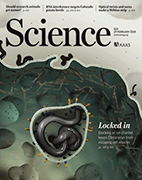Team
Computational Biology projects
Featured Research
Transcribed enhancers lead waves of coordinated transcription in transitioning mammalian cells

An atlas of active enhancers across human cell types and tissues

A promoter-level mammalian expression atlas

An integrated encyclopedia of DNA elements in the human genome

Landscape of transcription in human cells

Reports and Findings
Use of privacy-preserving record linkage to examine the dispensing of pharmaceutical benefits scheme medicines to pregnant women in Western Australia
Medications are commonly used during pregnancy to manage pre-existing conditions and conditions that arise during pregnancy. However, not all medications are safe to use in pregnancy. This study utilized privacy-preserving record linkage (PPRL) to examine medications dispensed under the national Pharmaceutical Benefits Scheme (PBS) to pregnant women in Western Australia (WA) overall and by medication safety category.
Published research Child Disability Computational Biology Maternal healthTime-course RNAseq data of murine AB1 mesothelioma and Renca renal cancer following immune checkpoint therapy
Time-critical transcriptional events in the immune microenvironment are important for response to immune checkpoint blockade (ICB), yet these events are difficult to characterise and remain incompletely understood. Here, we present whole tumor RNA sequencing data in the context of treatment with ICB in murine models of AB1 mesothelioma and Renca renal cell cancer.
Children's Cancers Published research Computational Biology Sarcoma Translational Research Translational GeneticsImmune checkpoint therapy responders display early clonal expansion of tumor infiltrating lymphocytes
Immune checkpoint therapy (ICT) causes durable tumour responses in a subgroup of patients, but it is not well known how T cell receptor beta (TCRβ) repertoire dynamics contribute to the therapeutic response.
Children's Cancers Computational Biology Airway Epithelial Research Sarcoma Translational Research Subsite: Walyan Translational GeneticsMetagenomic Characterisation of the Gut Microbiome and Effect of Complementary Feeding on Bifidobacterium spp. in Australian Infants
Complementary feeding induces dramatic ecological shifts in the infant gut microbiota toward more diverse compositions and functional metabolic capacities, with potential implications for immune and metabolic health. The aim of this study was to examine whether the age at which solid foods are introduced differentially affects the microbiota in predominantly breastfed infants compared with predominantly formula-fed infants.
Published research Breastfeeding Early Childhood Development Nutrition Nutrition in Early Life ORIGINS Computational Biology Subsite: ORIGINS Project Clinical Epigenetics Immunology and Breast Feeding